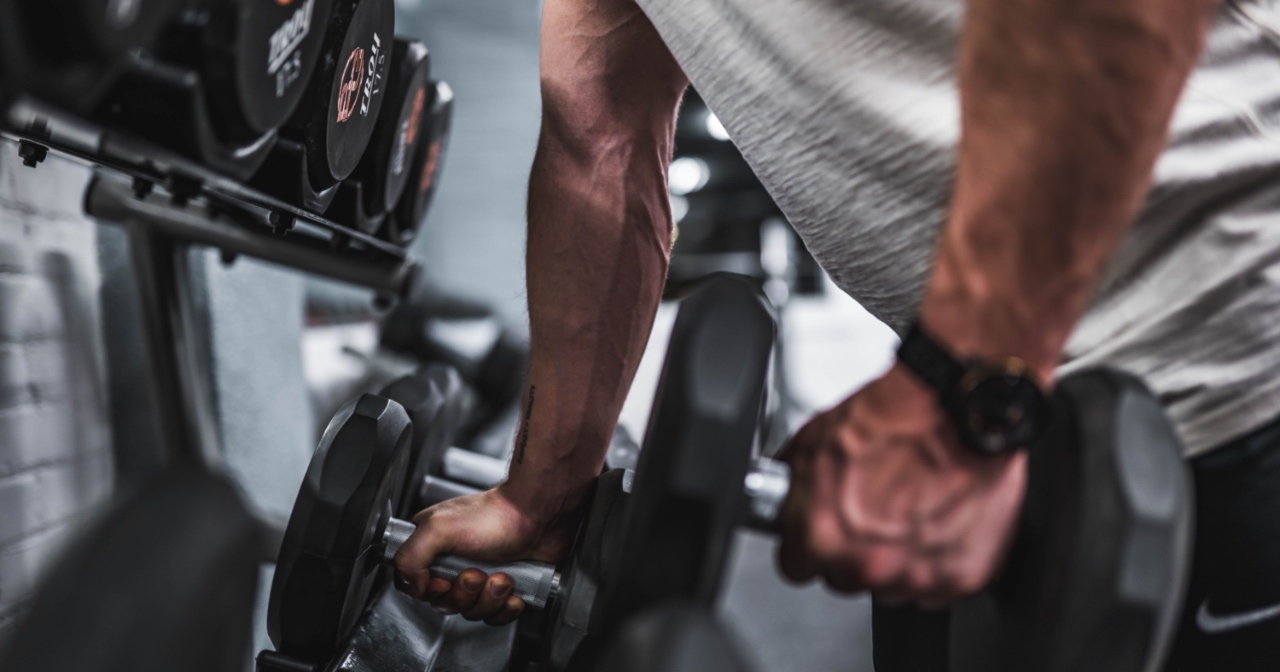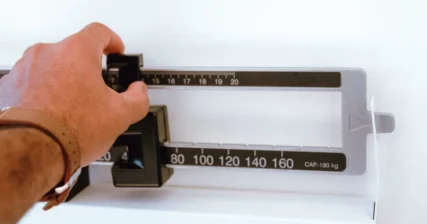Listen on: Apple Podcasts | Spotify
Fat loss for those over 40 years of age requires a different approach than it does for young adults. Your body won’t respond the same as it did back then. Nor will you get by with inadequate sleep, drinking too much, or doing so much cardio that you could watch a Netflix series each week while workout out on your bike, treadmill, or Nordic Track.
That said, just because you need to approach fat loss differently, it doesn’t mean it’ll be difficult.
In fact, you’ve probably learned by now that most things are pretty simple, and we have an uncanny ability to make them complicated.
In this post, I’ve outlined a simple fat loss plan for men and women over 40. If you embrace these five factors, you’ll see most of your excess body fat melt away in the months to come.
However, if you need something more aggressive, check out my four-week fat loss plan: 28 Days: 4 Weeks Of Fat Loss.
This is Not a Fat Loss Meal Plan
Unless someone is prepping for a bodybuilding or physique contest, I refuse to make a strict meal plan. Based on how often people ask for them, I know I’d make some great extra money, but I won’t sell what I don’t believe in.
I supposed that means I’d never get a job representing a COVID vaccine company either.
Anyway, I’m opposed to strict meal plans for a few reasons:
- Scripting out what to eat doesn’t teach you how to eat.
- A meal plan is only effective if you have access to the foods on the plan. When people go on vacation or get out of a routine they often go off the rails.
- Eating according to a meal plan often leads to obsession about upcoming meals and disordered eating patterns.
I want no part of that.
The good news is, when you eat and live within a few guidelines, your body almost always sheds fat and builds muscle, making you leaner and healthier. And when you eat based on guidelines, you can eat almost anywhere and avoid gaining weight.
In the rare circumstances that people don’t see a significant change within their first three to four months, I strongly encourage them to get a full blood panel through their integrative doctor. I’ll cover in a different post.
Fat Loss Factor 1: Protein
Eat more protein, and eat it first at each meal.
Most diets recommend reducing carbs or fat. In other words, your diet immediately starts with restriction.
Restriction doesn’t work, whether you’re referring to the restriction on freedom to choose an experimental drug or the freedom to eat from your junk food drawer.
Does fat restriction work? Maybe, at least maybe in the short-term. Does carb restriction work? Yes, for a while.
Does eating an excess of protein work? Absolutely.
In fact, research shows that higher-protein diets deliver better results than fat or carb restricted diets.
Higher-protein diets:
- Keep you full longer and cut cravings
- Help you maintain more steady blood sugar levels
- Stimulate muscle protein synthesis and decrease breakdown
- Are far more thermogenic, calorie-for-calorie, compared to fat or carbohydrate
- Support a strong immune system, helping you avoid getting sidelined by sickness
Unless someone has pre-existing kidney disease, I recommend men eat 1 gram per pound ideal bodyweight, and women eat 0.8 grams per pound ideal bodyweight.
If you choose to eat more, that’s no problem. Eating even more protein will not lead to body fat gains. Research has proven that over and over. Just don’t eat less.
Read more: Why is a high-protein diet best for health and fitness?
Fat Loss Factor 2: Breakfast Skipping
Skip breakfast and make lunch your first meal of the day.
If possible, avoid eating right away in the morning. If that is IMPOSSIBLE, at least stop eating cereal, toast, pancakes, or waffles and drinking fruit juice. That sort of a breakfast leaves you fatigued and braindead a couple of hours later. Nobody should start their day with that (including kids).
If you can wait until lunchtime, do so. The extended fast helps you mobilize more fat for fuel. The longer you go without food, the more you rely on your fat stores for energy. Just don’t be surprised if you have to deal with serious cravings and hunger for a few days.
Many people have trained themselves to depend on a bowl full of carbs to start the day. When they stop, it’s almost like they have withdrawal symptoms. That said, if you’re a diabetic on medication, you need to work with a doctor here, or you might end up with excessive fluctuations in blood sugar.
In addition to burning stored body fat for more of your day, check this out:
Some studies have shown that when people eat exactly the same foods, but within a shorter period of time each day, they lose weight.
Of course, this defies the mythical “calories in, calories out” dogma that’s part of most diets. It’s just another example of why eating based on calories is incorrect.
Aside from the fat loss benefits, intermittent fasting also improves insulin sensitivity, blood pressure, blood lipids and inflammation levels.
Read more: Intermittent Fasting: The health benefits of skipping breakfast
Fat Loss Factor 3: Hypertrophy Training
Train to build muscle so you’ll burn fat, not to burn fat so you lose muscle.
If you want to get lean and stay lean, you need to build muscle. Not unlike a bodybuilder.
Don’t worry, though. You won’t look like a bodybuilder unless you start taking steroids, too.
I want you to build as much muscle as you can, naturally.
In addition to giving yourself a more athletic and fit shape, building muscle:
- Raises your resting metabolic rate, making it easier to eat more and still stay lean
- Increases your capacity for carbohydrates, allowing you to eat carbs without having them turn to fat or raise triglycerides as easily
- Adds integrity to your joints, reducing the risk of injury as you age
- Improves longevity; you’re better off with more muscle and a little extra body fat than you are with being super lean and lacking muscle
Intense strength training also raises testosterone and growth hormone, further supporting muscle growth and fat metabolism.
If you’re wondering whether strength training is more important than cardio for fat loss, the answer is yes!
Unfortunately, many people still subscribe to the “low-calorie diet + lots of cardio” approach to weight loss. They might end up in smaller clothes, but they often end up with skinny-fat bodies. They lose as much muscle as they lose body fat. When they get off their diet, the weight comes on faster than they lost it, and then often gain back more body fat than they started with. That’s rarely the case with those who strength train properly.
I’m not saying you should abandon cardio altogether, but most people don’t need to use it until they’re nearing their fat loss goal. Think of it as a tool to get the last 5-10 pounds of fat off, not as something you need to do all the time.
If you’re brand new to strength training, follow Genesis, my free, 6-month strength training program for beginners.
If you have experience with strength training but don’t have a professional, periodized program to follow, join one of my virtual personal training programs.
Read also: Strength Training Stimulates Fat Loss: Here’s How.
Fat Loss Factor 4: Sleep
Sleep to support your hormones. Your hormones help you control your body fat.
Even though I’ve seen it happen time and again, I’m still amazed by how often sleep-deprived, overweight men and women, start shedding body fat within a couple of weeks of adequate sleep.
Seven hours is a bare minimum. I personally need eight hours, as many adults do.
Sleep deprivation leads to overweight and obesity for multiple reasons. Sleep debt:
- Increases fasting insulin levels and decreases insulin sensitivity
- Raises cortisol
- Compromises thyroid production
- Reduces testosterone
- Increases cholesterol
- Stimulates appetite
- Causes depression
- Compromises muscle growth
- Increases inflammation
- Suppresses immune function
- Lowers libido
Each of these results can be tied back to gains in body fat. Interestingly, though, insomnia actually increases metabolic rate. However, sleep debt causes such hormonal havoc that people gain body fat in spite of a faster metabolic rate.
If you have trouble with getting enough quality sleep, I’d suggest skipping the fat-loss supplements in the next section. Instead, take your Foundational Five and then start using some supplements or essential oils to enhance your sleep quality and quantity.
Read more: Sleep: Your most common questions, answered.
Fat Loss Factor 5: Supplements
Supplement first to optimize your nutrition, then to accelerate fat loss.
I assume you already take the Foundational Five every day. If not, read this article and get started with them: Foundational 5: The best health supplements for (almost) every body.
Once you’re consistently taking them, consider trying some of the following, in addition to the Foundational Five, not in place of them.
African Mango (Irvingia gabonesis)
Extracts of the African mango seeds may inhibit adipogenesis, fat cell growth. Research shows a specific form of the extract called IGOB131® also lowers leptin levels. In some people, elevated leptin may cause increased hunger, so it might be best to pair African mango up with another supplement that curbs cravings.
Supplementing with it also improves lipid levels and the available research has consistently led to reductions in bodyweight for overweight or obese participants.
Study participants took 150 mg of IGOB131® before lunch and dinner each day.
Bergamot
Bergamot is well-known for its effects on blood lipids, but more recently, a specific form called bergamot phytosome was shown to decrease visceral fat. Overweight and obese men and women took 500 mg, twice daily and experienced a significant decrease in belly fat.
It’s unclear whether or not bergamot essential oil would have the same effect as researchers have not conducted a similar study with it.
Bitter Orange (Citrus aurantium)
Bitter orange gained popularity as a fat loss supplement after the FDA banned ephedrine. Bitter orange essential oil contains limonene, linalool, and β-myrcene.
The fruit also contains p-synephrine, a compound with some similarities to ephedrine. It doesn’t impact heart rate or blood pressure like ephedrine does, but it does raise metabolic rate by stimulating brown adipose tissue.
The authors of a 2019 study concluded…
we suggest CA as a new potential anti-obese agent which can inhibit white adipogenesis and induce brown adipocyte thermogenesis via activation of AMPKα.
Park J, et al.
Taking naringin, caffeine or drinking black coffee when while taking synephrine could enhance its effects on metabolic rate and fat loss.
The typical fat loss dose is 50 mg of synephrine per day, though it’s possible that higher doses could be more effective in some people.
Standardized Concentrations
Many botanical supplements contain a primary active ingredient. However, the amount of that active ingredient varies by season, harvest location, extraction process, and more.
To ensure each supplement contains a standardized amount of that active ingredient, you’ll see a standardized percentage on supplement labels. This is crucial for understanding whether or not a supplement contains an efficacious dose of the active ingredient.
Take synephrine, for example. One supplement might could contain 500 mg of bitter orange, standardized to 6% synephrine. Another might contain 350 mg, standardized to 30%. At first glance, 500 mg sounds like a stronger dose. Doing the math, you realize it only contains 30 mg of synephrine compared to the 105 mg in the second supplement. If they cost the same, the second supplement is a better option.
Keep this in mind when you shop for your supplements.
Caffeine
Of all the fat loss supplements on the market, caffeine shows the most consistent benefit. That’s not to say you’ll get ripped from taking NoDoz pills or by drinking black coffee, but caffeine absolutely enhances fat metabolism, metabolic rate, and energy levels.
Not only does caffeine increase calorie expenditure, but it also reduces energy intake by curbing appetite. The more strict your diet is, the more important it is to leverage the effects of caffeine to reduce cravings and hunger.
Though some people may tolerate more, most people are best at limiting their caffeine intake to 500 mg per day. Eight ounces of caffeine contains 70-140 mg of caffeine, depending on how it was brewed.
Capsaicin
Capsaicin comes from cayenne peppers and can raise metabolic rate by up to 6% over a four hour period following consumption. In overweight study participants, that translated to 129 more calories burned in the four hours.
It raises metabolic rate by stimulating brown adipose tissue. In addition, capsaicin supplementation raises adiponectin levels, suppresses body fat storage, and enhances satiety.
Research shows it also stimulates fatty acid breakdown in your fat cells, which increases their availability in the bloodstream. Like caffeine, it can also reduce appetite.
The typical dosage is 2-5 mg of capsaicin. Keep in mind that when you supplement with it, you’re actually supplementing with cayenne pepper, which includes a very small percentage of capsaicin. To get the 2-5 mg per day, you’d need to take 500-2000 mg of the pepper.
Of course, including more cayenne pepper in your diet is a great way to enhance your fat loss efforts as well.
Forskolin (Coleus forskohlii)
Forskolin increases production of hormone-sensitive lipase (HSL), which mobilizes stored fat.
In one study, thirty overweight men were divided into a control group and a treatment group. The treatment group took 250 mg of 10% forskolin extract two times per day for 12 weeks. Compared to the control group, the supplemented group lost body fat and increased lean body mass, bone mass, and free testosterone levels.
Because forskolin mobilizes fat stores, but doesn’t increase metabolic rate, I wouldn’t expect it to have a significant effect on fat loss for those who do not exercise, though.
What about other supplements?
The ingredients above are safe, and fairly effective at supporting fat loss. That said, other compounds exist which could be more effective, but come with greater risks.
For example, ephedrine was extremely effective for fat loss, but it increased blood pressure and heart rate so much that it increased the risk of cardiovascular problems. And so, the FDA banned it in supplements.
Nicotine is another example. It can lead to fat loss but at the cost of addiction.
I’ll probably add to this list over time, but for now, the above ingredients are safe and backed up by enough research to make the list.
Summary: It’s easier to get fat than it is to get lean.
Our modern-day, sedentary, convenience-food society sets us up so we can get fat without much effort. It’s part of the reason the United States suffered from COVID-19 much more than many other countries (on top of the corruption surrounding how the illness was treated).
It isn’t as easy to get and stay lean and healthy. But, little in life comes with ease. That said, if you adopt the five fat loss factor above, you’ll get healthier and leaner with a little more ease than most other fat loss methods and diets. In the end, the five factors are sustainable. You just have to be willing to change in order to make them habits.
References
Askarpour, Moein, et al. “Beneficial Effects of L-Carnitine Supplementation for Weight Management in Overweight and Obese Adults: An Updated Systematic Review and Dose-Response Meta-Analysis of Randomized Controlled Trials.” Pharmacological Research, vol. 151, Jan. 2020, p. 104554. PubMed, https://doi.org/10.1016/j.phrs.2019.104554.
Diepvens, Kristel, et al. “Obesity and Thermogenesis Related to the Consumption of Caffeine, Ephedrine, Capsaicin, and Green Tea.” American Journal of Physiology-Regulatory, Integrative and Comparative Physiology, vol. 292, no. 1, American Physiological Society, Jan. 2007, pp. R77–85. journals.physiology.org (Atypon), https://doi.org/10.1152/ajpregu.00832.2005.
Haaz, S., et al. “Citrus Aurantium and Synephrine Alkaloids in the Treatment of Overweight and Obesity: An Update.” Obesity Reviews: An Official Journal of the International Association for the Study of Obesity, vol. 7, no. 1, Feb. 2006, pp. 79–88. PubMed, https://doi.org/10.1111/j.1467-789X.2006.00195.x.
Lee, Jounghee, et al. “The Effects of Irvingia Gabonensis Seed Extract Supplementation on Anthropometric and Cardiovascular Outcomes: A Systematic Review and Meta-Analysis.” Journal of the American College of Nutrition, vol. 39, no. 5, July 2020, pp. 388–96. PubMed, https://doi.org/10.1080/07315724.2019.1691956.
Ngondi, Judith L., et al. “IGOB131, a Novel Seed Extract of the West African Plant Irvingia Gabonensis, Significantly Reduces Body Weight and Improves Metabolic Parameters in Overweight Humans in a Randomized Double-Blind Placebo Controlled Investigation.” Lipids in Health and Disease, vol. 8, BioMed Central, 2009, p. 7. www.ncbi.nlm.nih.gov, https://doi.org/10.1186/1476-511X-8-7.
Office of Dietary Supplements – Dietary Supplements for Weight Loss. https://ods.od.nih.gov/factsheets/WeightLoss-HealthProfessional/. Accessed 3 Jan. 2022.
Onakpoya, Igho, et al. “The Efficacy of Irvingia Gabonensis Supplementation in the Management of Overweight and Obesity: A Systematic Review of Randomized Controlled Trials.” Journal of Dietary Supplements, vol. 10, no. 1, Taylor & Francis, Feb. 2013, pp. 29–38. Taylor and Francis+NEJM, https://doi.org/10.3109/19390211.2012.760508.
Park, Jinbong, et al. “Bitter Orange (Citrus Aurantium Linné) Improves Obesity by Regulating Adipogenesis and Thermogenesis through AMPK Activation.” Nutrients, vol. 11, no. 9, Multidisciplinary Digital Publishing Institute (MDPI), Sept. 2019. www.ncbi.nlm.nih.gov, https://doi.org/10.3390/nu11091988.
Park, Soo-Hyun, et al. “The Effects of Steamed Ginger Ethanolic Extract on Weight and Body Fat Loss: A Randomized, Double-Blind, Placebo-Controlled Clinical Trial.” Food Science and Biotechnology, vol. 29, no. 2, Feb. 2020, pp. 265–73. PubMed, https://doi.org/10.1007/s10068-019-00649-x.
Suntar, Ipek, et al. “An Overview on Citrus Aurantium L.: Its Functions as Food Ingredient and Therapeutic Agent.” Oxidative Medicine and Cellular Longevity, vol. 2018, 2018, p. 7864269. PubMed, https://doi.org/10.1155/2018/7864269.
Talenezhad, Nasir, et al. “Effects of L-Carnitine Supplementation on Weight Loss and Body Composition: A Systematic Review and Meta-Analysis of 37 Randomized Controlled Clinical Trials with Dose-Response Analysis.” Clinical Nutrition ESPEN, vol. 37, June 2020, pp. 9–23. PubMed, https://doi.org/10.1016/j.clnesp.2020.03.008.
Zheng, Jia, et al. “Dietary Capsaicin and Its Anti-Obesity Potency: From Mechanism to Clinical Implications.” Bioscience Reports, vol. 37, no. 3, May 2017, p. BSR20170286. PubMed Central, https://doi.org/10.1042/BSR20170286.
Photo by Anastase Maragos on Unsplash



